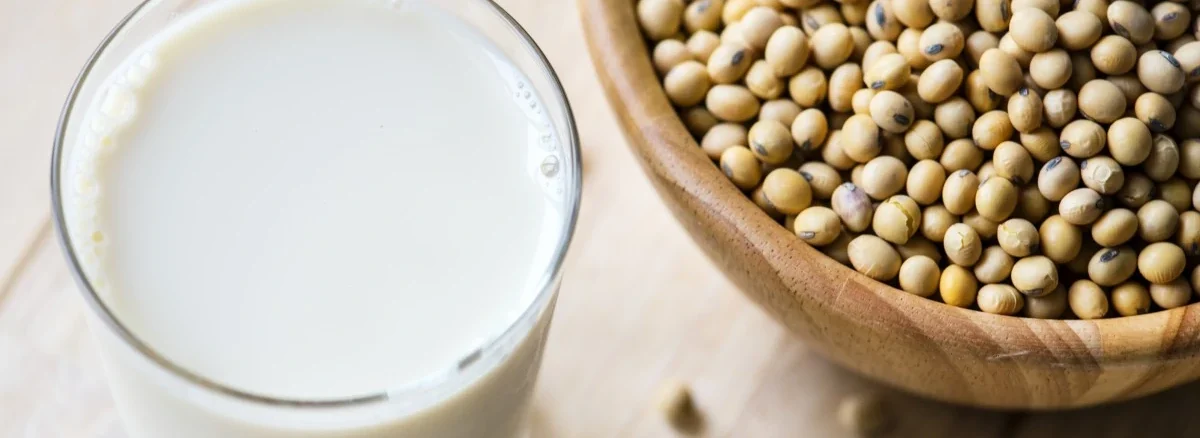Calcium is a mineral that is essential for sustaining bone health. It is also crucial for muscle contraction, nerve transmission, blood pressure regulation, and blood clotting. Many calcium supplements are available on the market, but you may typically receive all of the calcium you need from your diet. Although there is no set amount of calcium a person should consume, it varies from region to region and even from person to person. It normally falls between 700 and 1000 milligrams. If you are a vegan, it may seem more difficult to plan a calcium-rich diet.
Many people receive their calcium from milk or yogurt, but many vegans avoid consuming any animal products, including dairy. Because animal proteins leach calcium from your bones, calcium from plant sources is better for you than calcium from milk or other animal products. All you have to do is make sure you consume enough calcium-rich fruits, vegetables, and other plants. Today, I will tell you about the top vegetarian sources of calcium.
Top Vegetarian Sources Of Calcium
Oranges
A 100gm of orange contains about 40mg of calcium! So eat this sweet and tart fruit frequently and maintain your calcium level. Oranges are also a good source of Vitamin C, which aids in the protection of the immune system and the destruction of free radicals that cause cell damage.
Sesame Seeds
A person’s diet can be supplemented with 88 mg of calcium by eating just one spoon of sesame seeds. For a nuttier flavour, roast the seeds and sprinkle them over a salad or bake them into bread. Sesame seeds are also high in zinc and copper, both of which are good for bone health. According to a study, supplementing with sesame seeds helps to alleviate some symptoms of knee osteoarthritis.
Broccoli
One cup of frozen broccoli can have about 87 mg of calcium. According to a study, a broccoli-rich diet also helps lower the risk of cancer. In studies on rats, broccoli chemicals have proven to be helpful in the prevention of malignancies of the bladder, colon, liver, breast, and stomach. Human studies, on the other hand, have yielded mixed outcomes. Broccoli has high levels of immune-boosting vitamin C, bone-strengthening vitamin K, and folate, which regulates cell growth and reproduction and is sometimes referred to as a “superfood.”
Almonds
Almonds are well-known for their plant protein and healthy fat content, but they also contain a significant quantity of calcium. Although certain almond milk variants are calcium-fortified, eating an ounce of nuts per day can increase your calcium intake by nearly 10%.
Chia Seeds
Chia seeds are loaded with nutrients. One ounce contains 18 per cent of your daily calcium needs, eleven grams of fibre, and a healthy dose of omega-3 fatty acids. Just a tablespoon of these seeds on top of your salads will significantly increase your calcium intake.
Soya
Soy milk, soybeans, and tofu are all excellent calcium sources. Soya milk contains over 261 mg of calcium, but that’s not all it has to offer. Iron, protein, magnesium, and selenium are also present. Soya is also the only vegetarian meal that includes all eight necessary amino acids, making it a complete protein.
White Beans
Any bean that is white or off-white is referred to as a white bean. Not only does half a cup of these beans provide up to 100 mg of calcium, but they’re also quite tasty. They’re also detoxifying and have a lower glycemic index.
Oatmeal
Oats contain a form of soluble fibre that slows the absorption of carbohydrates into the bloodstream. They’re also high in magnesium, which is important for enzyme activity and energy production, as well as helping to avoid heart attacks and strokes.
Sweet Potatoes
Each 100gm of sweet potato contains about 30 mg of calcium. Potassium and vitamins A and C are also present in sweet potatoes. Vitamin A is a vital antioxidant that may help with eye health, anti-aging, and cancer prevention. Sweet potatoes are low in fat and calories.
Sunflower Seeds
A single cup of sunflower seed kernels delivers about 100 mg of calcium. These seeds are also high in magnesium, which helps to regulate nerve and muscle health by balancing the effects of calcium in the body. Sunflower seed kernels are also high in vitamin E and copper, which can improve bone strength, flexibility and also prevent bone loss.
However, Sunflower seeds can have a lot of added salt, which depletes calcium levels in the body. Choose raw, unsalted seeds for the best health benefits. To avoid excessive calorie intake, take a single serving of one handful of kernels.


